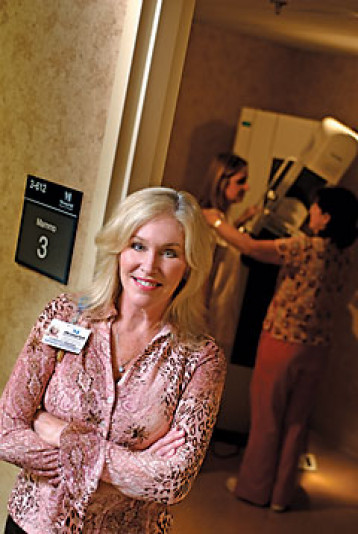SHARE:
Breast Cancer
Breast Cancer: A Cultural Divide
Outreach efforts aim to tackle taboos among some ethnic groups.
|
Jeanne P. Brotzky has spent much of her career touting the benefits of monthly breast self-exams, annual mammograms and early treatment. Some women, however, aren’t getting the message — particularly Hispanic women in Miami-Dade County. As a group, they have the highest rate of advanced, late-stage breast cancer in the nation.
“It’s very frustrating,” says Brotzky, former director of women’s health services and current assistant director of volunteer services at Memorial Regional Medical Center in Hollywood. “Through our outreach programs, we’re getting into more and more communities and educating women, but unfortunately there is that percentage of patients we don’t get.”
There isn’t a simple or single reason for this. Dr. Jack Michel, a physician at Larkin Community Hospital in Miami, directs the Project Access Foundation, an educational outreach program that provides lower cost screenings to uninsured and underinsured south Florida women. He says cultural beliefs keep some women away. “Particularly in the Hispanic population and the Haitian population, there’s a taboo in dealing with breasts and breast cancer,” he says.
Brotzky has found that healthcare costs are another factor. For some women,
“it’s either they are going to pay their light bill or they’re going to continue to carry their health insurance,” she says.
In response, the Susan G. Komen Breast Cancer Foundation of Miami/Fort Lauderdale is funding a variety of local outreach programs, including Project Access, says Bobbi Meyers, the chapter’s executive director.
Brotzky thinks the effort is working. She says, for example, that younger Hispanic women seem more open to self-exams and mammograms. Many daughters of Hispanic women, she says, are even setting up screenings for their mothers — whether the moms want to be screened or not. “We’re making an impact,” Brotzky says.
Stealth Missiles
Since graduating from medical school in 1974, Dr. Elisabeth McKeen has seen dramatic improvements in survival rates among women battling breast cancer. According to the National Cancer Institute, for example, 75% of women diagnosed with breast cancer 35 years ago could expect to live at least five years. Today, 90% of breast cancer patients can expect to live at least five years. And McKeen, an oncologist at the Palm Beach Cancer Institute, points to some promising research and predicts even higher survival rates.
Researchers recently identified four subtypes of breast cancer, which McKeen says will eventually allow for more targeted treatments. The subtypes include Luminal A and Luminal B, both slow-growing, low-grade cancers, and HER2 Positive and Basal, both dangerous and fast-growing cancers.
“We're going to develop treatments specific to these subtypes,” McKeen says. “It'll be chemotherapy that's less like a bomb and more like a stealth missile directed right at the cancer.”
























